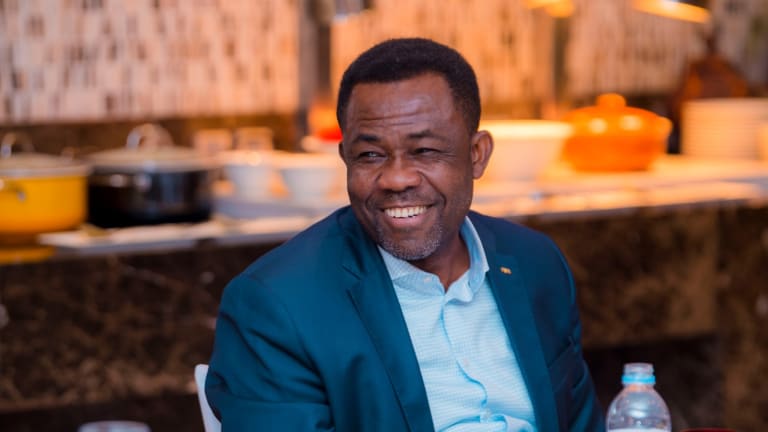By Andrew Warshaw
March 15 – Having seen the man he backed become head of African football, Gianni Infantino now has the luxury of even more influence across the Continent after one of FIFA’s top officials was parachuted into the Confederation of African Football’s number two role at the weekend.
Twenty-four hours after South Africa’s Patrice Motsepe was sworn in by acclamation as CAF president in succession to the disgraced Ahmad Ahmad (he was the only candidate after all the other three pulled out), Veron Mosengo-Omba left his role at FIFA, where he had recently been working as Chief Member Associations officer “with immediate effect”, to take up the position of CAF general secretary.
The Swiss-Congolese, apparently an old friend of Infantino after the pair read law together at university, replaced Morocco’s Abdel Bah, who had occupied the role in an acting capacity since March last year and, by all accounts, had done a decent enough job.
“On behalf of all of FIFA, we would like to thank Veron Mosengo-Omba for his excellent work,” said Infantino and FIFA General Secretary Fatma Samoura in a joint statement.
You bet they would. Infantino faces re-election in 2023 and the votes of Africa’s 54 FIFA members are vitally important.
Infantino has gone on record as insisting he did not meddle in the presidential election process but Mosengo-Omba’s appointment will raise further questions about FIFA’s role in such crucial regional ballots.
As anticipated after the behind-the-scenes deal-making that left Motsepe in pole position in the name, apparently, of “unity”, two of the three men who ran against him were named CAF vice-presidents at a meeting of the CAF executive committee.
Senegal Football Federation boss Augustin Senghor was named first vice-president while his Mauritanian counterpart Ahmed Yahya was named second vice-president.
Both wanted the presidency instead but had to be content with falling into line behind the man they opposed. Unity? Don’t hold your breath.
In another classic case of CAF expediency, in order to accommodate both Senghor and Yahya in what looked, on paper at least, like positions of power, CAF took the step of increasing its vice-presidential tally from three to five. As such, Djibouti’s Suleiman Waberi, Cameroonian Seidou Mnombo Njoya and Kanizat Ibrahim of Comoros were appointed third, fourth and fifth vice-presidents respectively.
Ibrahim is the first woman ever to become a vice-president of CAF, undoubtedly a forward-looking move.
But in the main, the overhaul of the CAF leadership raised as many questions as answers.
Motsepe, reportedly the ninth richest man in Africa, may have arguably been the best candidate in terms of using his business skills to improve CAF’s dire finances. But in another indictment of CAF’s reputation, the man who took over from Ahmad as interim CAF president, Constant Omari, was prevented from running for a FIFA Council spot because he is the subject of an ethics investigation.
Any more skeletons in the new African football regime’s cupboard? Don’t rule it out.
Contact the writer of this story at moc.l1734949565labto1734949565ofdlr1734949565owedi1734949565sni@w1734949565ahsra1734949565w.wer1734949565dna1734949565

